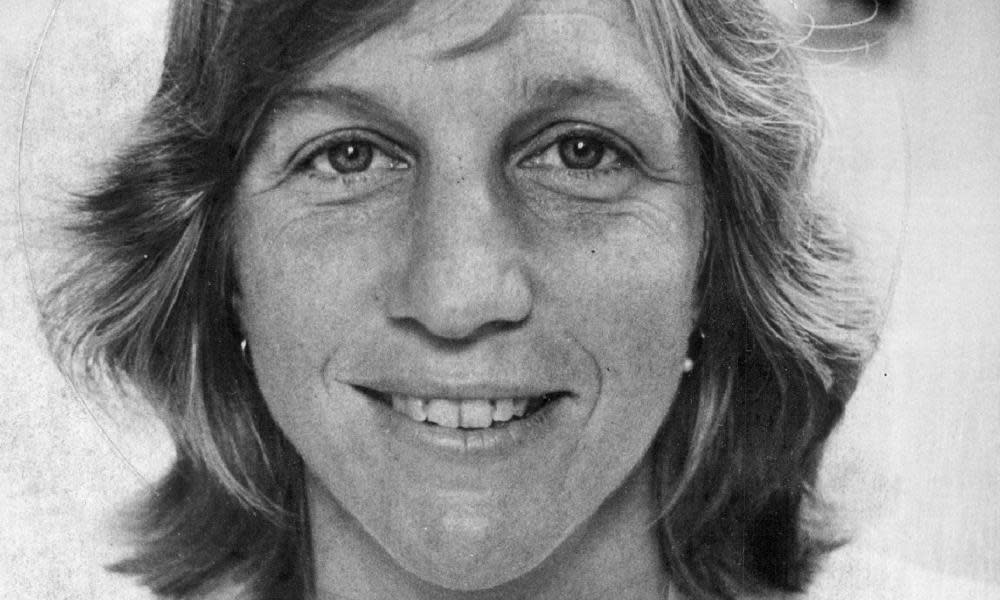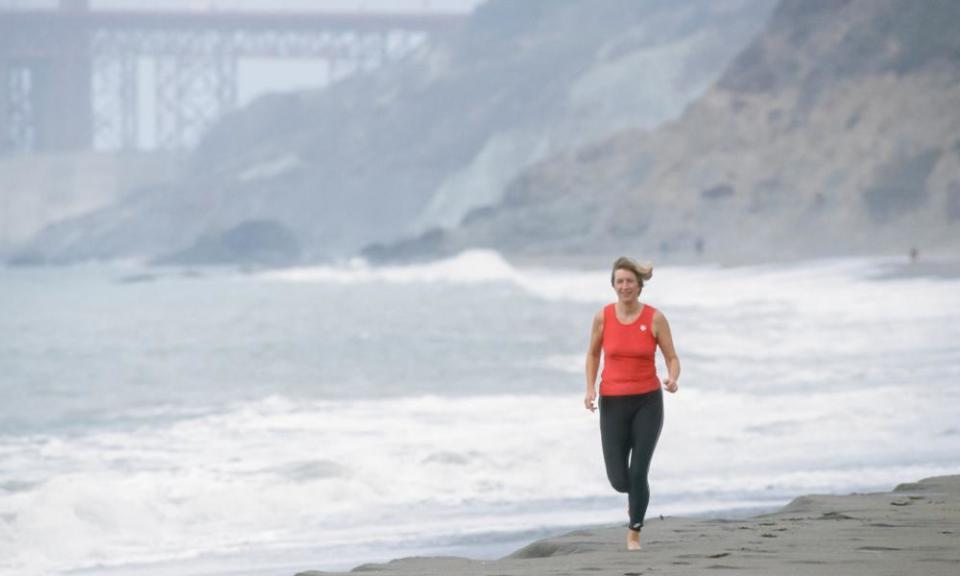Joan Ullyot obituary

In 1976, the year that Dr Joan Ullyot published her key book Women’s Running, the longest distance that female athletes were allowed to run in the Olympic Games was 1500m. Men, meanwhile, were free to run the 5,000m, 10,000m and the marathon. Ullyot, who has died aged 80 from cardiac arrest, played a crucial role in the movement that eventually led to profound change.
Ullyot, who graduated from Harvard Medical School in 1966 and became an expert in exercise physiology, systematically destroyed many of the myths surrounding women’s running.
Even in the 1970s, women were solemnly told by respected medical experts that distance running would make them unappealingly masculine, could be downright dangerous and perhaps might even cause irreparable damage to their reproductive organs. Ullyot was determined to debunk such nonsense, both in words and deeds. “The purpose of the book was to tell women what they could do in running, not what they couldn’t do,” she recalled.
Change, though, was slow in coming. Despite repeatedly being shown evidence that women were physiologically capable of exactly the same distances as men, the International Olympic Committee held out. In 1977, they refused to add even a 3,000m race for women in the 1980 Moscow games.
Alongside the women’s marathon world record holder, Jacqueline Hansen, Ullyot became a member of the International Runners’ Committee, lobbying for inclusion in distance competition. Her research was used in presentations to the IOC, and eventually the weight of evidence won out. Finally, for the 1984 games in Los Angeles, the IOC added the women’s marathon.
Less well known is another piece of pioneering work Ullyot was involved in. In 1984, she collaborated with a British company to create a “personal robot athletics coach” designed to run on Apple computers. Decades before apps and the Couch-to-5k programme, her experience provided the coaching for a “programme to guide the novice from the jogger stage to the racing stage”, according to a Guardian report from the time.
Although she was instrumental in the evolution of women’s sport, Ullyot was not a lifelong athlete.
The daughter of Theodore Lamb, an architect, and Deborah (nee Bent), she was born in Chicago and raised in Manhattan, then California, and running was never a part of her childhood.
As she recalled in a 2017 interview: ““Girls didn’t run. I don’t know why, but they just didn’t.” Even attending Wellesley College in Massachusetts – which is on the actual course of the Boston marathon – sparked no interest. As an undergraduate, she studied German and dreamed of a career in the foreign service, only to discover, to her chagrin, that female staff were not allowed to be married. Instead she turned to medicine, and joined the faculty of the University of California, San Francisco, later moving to the city’s Institute of Health Research.
It was not until her 30s that Ullyot discovered running. In 1965 she married Daniel Ullyot, a heart surgeon, and they went on to have two sons, Theodore and John. In 1971 she felt, in her own words, that she was “getting a little bit plump around the middle” and, clad in jeans, started jogging around a local park with a friend. Soon after, she entered a local 12km race, did well, and never looked back.

Her research and her running career followed twin trajectories. From 1972, women were finally allowed to compete officially in the Boston marathon, and in 1973 the first all-women’s marathon was held in Waldniel, West Germany. Ullyot was not only on the start line as part of the US team but also acted as interpreter.
She went on to run more than 75 marathons, as well as coaching countless other runners. That included her own sons, much to their mortification. She would run with them for the three miles to their school, both carrying backpacks of schoolbooks. “It was extremely embarrassing for a couple of teenagers,” Theodore recalled. Both, however, went on to become runners.
In fact when Theodore ran a marathon quicker than his mother’s own personal best, she resolved to outdo him, and did so by two minutes, running 2 hr 47 min when she was 48. In an interview with the New York Times the following year, she said “I’ve had a motto since turning 40. Age, experience and cunning can overcome youth and ability.”
It was her abilities as both physician and runner that afforded her such respect in the field, and such influence as part of the vanguard of women’s distance running. Kathrine Switzer – another pioneer and the first woman to officially finish the Boston marathon – described her as “an unstoppable personality, bigger than life, opinionated at the top of her mighty lungs, and with an unstinting appetite for fun and capacity for wine”.
With participation in mass marathons such as London reaching parity only now, female runners owe her much. Without the stubbornness, patience and determination of women like Ullyot, distance running for women might have stalled at the start line.
Ullyot’s first marriage ended in divorce. She is survived by her second husband, Charles Becker, whom she married in 1990, her sons and three grandchildren.
• Joan Ullyot, sports physiologist and campaigner, born 1 July 1940; died 19 June 2021


